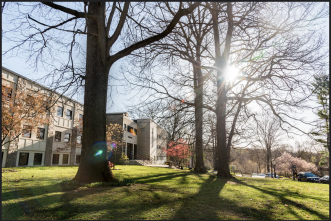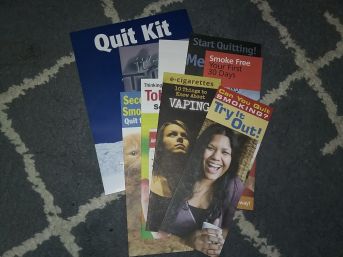Quitting an addiction is difficult and some students and faculty need extra help from groups or specialists in order to quit the addiction of smoking. Sponsored by the Cancer Society, The Great American Smokeout is held on the third Thursday of November every year in order to provide students and faculty with the proper information and guidance towards quitting the addiction of smoking.
“Don’t give up and don’t get discouraged if this is the third time you have tried to quit smoking,” director of health services Susan Fitzgerald said. “The average smoker tries seven times before they may be successful in quitting cigarettes.”

As the health care provider, Fitzgerald is opposed to smoking on campus and encourages students and faculty to quit to prevent any negative mental and physical effects. She does so by offering small kits to her patients who ask about how to quit smoking and help orchestrate the Great American Smokeout every year where more information will be given to those who wish to quit smoking.
According to the Cabrini University Student Handbook, smoking is not fully prohibited on campus, only inside buildings. There are other regulations and restrictions on where a student is allowed to smoke.
“Individuals smoking outside of the buildings are required to do so at a minimum distance of 30 feet from the doorway,” according to the student handbook, “and to properly extinguish and dispose of their smoking material in the receptacles provided.”
There are non-smokers on campus who have their own opinions on smoking. Sophomore business management major Cameron Wolf is open-minded towards the act but wishes those who smoke to consider the consequences.
“Personally, it’s their choice. They can do it if they want but I highly disagree with that,” Wolf said. “It’s horrible for you, it’s expensive and it’s not worth it in the long run.”
Smoking can lead to long term illnesses and diseases that can ultimately take the life of the individual.

“Smoking and smoking-related diseases are responsible for half a million deaths every year and it far outweighs cancer deaths combined,” Fitzgerald said. “Heart diseases are number one killers and smoking is related to heart disease and lung cancer. The statistics are overwhelming.”
Sophomore elementary education and special education major Anthony Frasca speaks of experience about someone he knows at the risk of death from smoking.
His father, a heavy smoker, would smoke two to three packs of cigarettes a day when his doctor warned him about the risk of him losing his life in 10 years if he continued. His father stopped cold turkey, or all at once, instead of taking small steps and after many attempts, Frasca’s father has fully quit and it has been a full seven months since he quit.
“Finding out if he still continued to smoke like he did and his life would be done in 10 years,” Frasca said. “I think that just woke him.”
Unfortunately, Frasca lost his grandparents on his father’s side from lung cancer due to their heavy smoking.

To quit smoking is a difficult task. American writer and publisher Samuel Langhorne Clemens, also known as Mark Twain, once said, “Giving up smoking is easy…I’ve done it hundreds of times.” There are groups and professionals who provide the necessary help and guidance for those who wish to quit.
“There are lots of ways of quitting and there are lots of ways to support people as they try to quit smoking,” Fitzgerald said. “medications, over the counter products, groups and the state of Pennsylvania department of health has a free program where you can get 24/7 support on how to quit with live chats.”
The Great American Smokeout will be held on Thursday, Nov. 21 where you can find tables in the Dixon center and in Founders hall outside of the dining hall. Fitzgerald also has small kits with information about how to quit smoking in the health suite located in Founders Hall Room 98.


